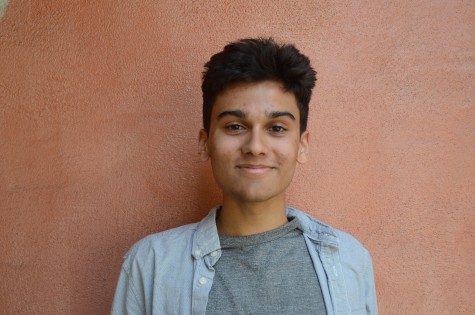Affirmative Action
Supreme court upholds ban on affirmative action
The Supreme Court upheld a Michigan amendment on April 22 that bans affirmative action in the state’s public universities in “Schuette v. Coalition to Defend Affirmative Action.”
The 6-2 ruling invalidated a fed- eral appeals court’s decision in 2011 to overturn Section 26 of Article I of the Michigan Constitution. Section 26 was previously approved by voters in 2006, forbidding public colleges to take into consideration race, gender, ethnicity, or national origin for college admissions.
The ruling has brought affirmative action back into the spotlight. Proponents of such a policy vouch for its benefits to the student population.
“I am in support of affirmative action because I think diversity is very important in higher education,” Felix Wu (11) said. “It just creates a better environment for people to learn in.”
Sebi Nakos (12) felt that although the concept of affirmative action is well-founded, the execution of the policy is imperfect.
“I think that the idea is good, that you stratify the kind of people that you get going into the top colleges,” he said. “But I think that the way it’s executed is poorly done, because when you try and give people who have [been] disadvantaged historically the advantage again, you have to take into account their socioeconomic status, not just the race of the person.”
Sebi believes that higher educa- tion admissions should take economic standing, rather than race, into ac- count.
Critics of affirmative action ar- gue that admissions should be neutral, based solely upon merit instead of other factors.
“I think that given the fact that we all have equal access to college and education, I think that we should just keep that right now. I think doing anything otherwise would be reverse discrimination,” Zarek Drozda (10) said. “As long as everyone has access to some sort of college or higher ed- ucation, that we can’t create laws that artificially inflate people’s skills one way or another.”
Ashwini Iyer (11), felt that economic background, rather than eth- nicity, should serve as a factor in college admissions.
“I agree with them looking at the kind of school you went to and under- standing whether or not you took advantage of the resources you had, but I don’t think they should have quotas on races,” she said.
Co-director of College Counseling Nicole Burrell shared her thoughts on the affirmative action and its impact on Upper School students.
“I would say that it’s never a one- to-one correlation. Having worked in the admission side of things, it’s never that clear-cut,” she said. “It’s a really tricky thing; how do you define what merit is? For kids going off to these schools to be exposed to all kinds of kids, in the long run, is a good goal.”
Currently, eight states includ- ing California have already banned affirmative action from public higher education. “Schuette v. Coalition to Defend Affirmative Action” has set a precedent from which the movement to ban affirmative action will gain more momentum.
This piece was originally published in the pages of the Winged Post on May 16, 2014.

Shay Lari-Hosain (12) is the Editor-in-Chief and co-founder of Wingspan Magazine. Shay has interviewed 2013 Nobel Laureates, authors like Khaled Hosseini...
Vasudha Rengarajan is the Editor-in-Chief of Harker Aquila. As former Features editor and Sports editor for Aquila and a reporter for The Winged Post,...


















![“[Building nerf blasters] became this outlet of creativity for me that hasn't been matched by anything else. The process [of] making a build complete to your desire is such a painstakingly difficult process, but I've had to learn from [the skills needed from] soldering to proper painting. There's so many different options for everything, if you think about it, it exists. The best part is [that] if it doesn't exist, you can build it yourself," Ishaan Parate said.](https://harkeraquila.com/wp-content/uploads/2022/08/DSC_8149-900x604.jpg)




![“When I came into high school, I was ready to be a follower. But DECA was a game changer for me. It helped me overcome my fear of public speaking, and it's played such a major role in who I've become today. To be able to successfully lead a chapter of 150 students, an officer team and be one of the upperclassmen I once really admired is something I'm [really] proud of,” Anvitha Tummala ('21) said.](https://harkeraquila.com/wp-content/uploads/2021/07/Screen-Shot-2021-07-25-at-9.50.05-AM-900x594.png)







![“I think getting up in the morning and having a sense of purpose [is exciting]. I think without a certain amount of drive, life is kind of obsolete and mundane, and I think having that every single day is what makes each day unique and kind of makes life exciting,” Neymika Jain (12) said.](https://harkeraquila.com/wp-content/uploads/2017/06/Screen-Shot-2017-06-03-at-4.54.16-PM.png)








![“My slogan is ‘slow feet, don’t eat, and I’m hungry.’ You need to run fast to get where you are–you aren't going to get those championships if you aren't fast,” Angel Cervantes (12) said. “I want to do well in school on my tests and in track and win championships for my team. I live by that, [and] I can do that anywhere: in the classroom or on the field.”](https://harkeraquila.com/wp-content/uploads/2018/06/DSC5146-900x601.jpg)
![“[Volleyball has] taught me how to fall correctly, and another thing it taught is that you don’t have to be the best at something to be good at it. If you just hit the ball in a smart way, then it still scores points and you’re good at it. You could be a background player and still make a much bigger impact on the team than you would think,” Anya Gert (’20) said.](https://harkeraquila.com/wp-content/uploads/2020/06/AnnaGert_JinTuan_HoHPhotoEdited-600x900.jpeg)

![“I'm not nearly there yet, but [my confidence has] definitely been getting better since I was pretty shy and timid coming into Harker my freshman year. I know that there's a lot of people that are really confident in what they do, and I really admire them. Everyone's so driven and that has really pushed me to kind of try to find my own place in high school and be more confident,” Alyssa Huang (’20) said.](https://harkeraquila.com/wp-content/uploads/2020/06/AlyssaHuang_EmilyChen_HoHPhoto-900x749.jpeg)


